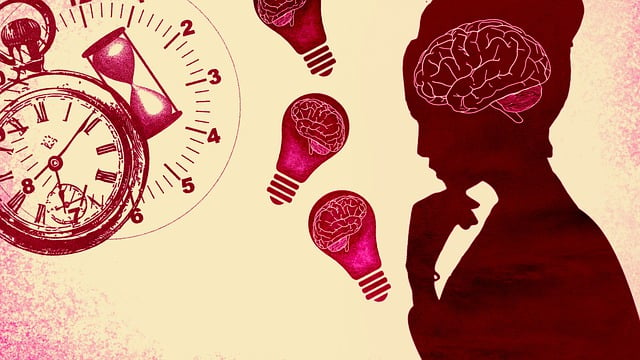Adolescent teens diagnosed with cancer face unique emotional challenges that can lead to depression and anxiety. Effective mood regulation strategies, including therapy (such as CBT), mental wellness coaching, journaling, mindfulness, and creative expression, are crucial for managing intense feelings. Open communication with healthcare professionals and peers further supports mental wellness. These approaches empower teens to navigate complex emotions, build resilience, and actively participate in their emotional healing process, ultimately enhancing their ability to face future challenges confidently.
Mood regulation is a crucial aspect of mental well-being, especially for adolescent teens facing cancer. This article explores various strategies designed to support young patients in managing their emotional challenges. From cognitive-behavioral therapy (CBT) as a powerful tool for emotion management to mindfulness and meditation techniques, we delve into innovative approaches. Additionally, the importance of social support and creative expression as therapeutic outlets are highlighted, offering valuable insights for navigating cancer issues specific to adolescents.
- Understanding Mood Regulation for Adolescent Teens with Cancer
- Cognitive-Behavioral Therapy (CBT): A Powerful Tool for Emotion Management
- Mindfulness and Meditation Techniques to Calm the Mind
- Social Support and Connection in Navigating Emotional Challenges
- Creative Outlets and Expression as a Form of Therapeutic Release
Understanding Mood Regulation for Adolescent Teens with Cancer

Adolescent teens diagnosed with cancer face unique challenges that can significantly impact their mood and overall mental wellness. Understanding how to regulate emotions effectively is a crucial aspect of their journey, as this can help mitigate the potential onset of depression and anxiety during treatment and beyond. The process involves recognizing and managing intense feelings, which are common reactions to such life-altering events. Many teens might struggle with fear, anger, or sadness, and learning healthy coping mechanisms can be instrumental in navigating these complex emotions.
Therapy plays a pivotal role in mood regulation for this demographic, offering specialized support tailored to their needs. Mental wellness coaching programs and journaling exercises are effective tools that encourage self-awareness and provide guidance on processing cancer-related stressors. These strategies promote resilience and empower teens to actively participate in their emotional healing process. Additionally, encouraging open communication with healthcare professionals and peers can foster a supportive environment, enhancing depression prevention efforts and overall mental wellness.
Cognitive-Behavioral Therapy (CBT): A Powerful Tool for Emotion Management

Cognitive-Behavioral Therapy (CBT) has emerged as a powerful tool for managing emotions, especially for adolescents and teens facing cancer issues. This form of therapy focuses on identifying and changing negative thought patterns that can contribute to emotional distress. By modifying these cognitive distortions, CBT equips individuals with effective coping skills to navigate challenging situations.
For cancer patients, CBT can play a significant role in enhancing their ability to cope with the stress and anxiety associated with their diagnosis and treatment. It helps them develop confidence-boosting strategies to manage intense emotions and improve overall emotional healing processes. Through CBT, adolescents can learn valuable coping skills that will serve them well throughout their lives, empowering them to face future challenges head-on.
Mindfulness and Meditation Techniques to Calm the Mind

Mindfulness and meditation practices have emerged as powerful tools for adolescents navigating cancer and its associated emotional challenges. These techniques offer a calming approach to manage stress and anxiety, which are common experiences for teens dealing with life-altering diagnoses. By focusing on the present moment, mindfulness encourages acceptance and a non-judgmental mindset. Through guided meditations, teenagers can learn to observe their thoughts and emotions without reacting impulsively, fostering a sense of control and resilience.
In the context of cancer support, empathy building strategies are often integrated into therapy sessions, combining mindfulness with active listening. The Mental Wellness Podcast Series Production can also play a significant role in promoting self-care and emotional well-being. Community outreach programs that incorporate these practices have shown promising results in helping adolescents cope with cancer-related issues, offering a sense of community and support beyond medical care.
Social Support and Connection in Navigating Emotional Challenges

Social support and connection play a pivotal role in helping adolescent teens navigate emotional challenges, especially those facing cancer issues. The supportive relationships they foster can significantly impact mental health outcomes, acting as a powerful tool alongside traditional therapy for adolescent teens with cancer. These connections provide a sense of belonging, understanding, and empathy, which are crucial for teens to express their feelings and fears without judgment.
Mental health professionals must recognize the importance of social support in risk assessment for these individuals. Encouraging positive thinking and implementing stress reduction methods can enhance these relationships further. By integrating social connection as a core component in therapy sessions, mental health professionals can empower adolescent teens to cope with cancer-related stress, fostering resilience and a supportive network that extends beyond therapy sessions.
Creative Outlets and Expression as a Form of Therapeutic Release

Creative outlets and artistic expression can serve as powerful therapeutic tools for adolescent teens facing cancer issues. Engaging in activities like painting, writing, dancing, or playing music allows them to channel their emotions and experiences into something tangible, providing a sense of control and release. This form of self-expression is particularly beneficial for processing complex feelings associated with cancer, such as fear, anxiety, or sadness.
By embracing creative expression, teens can externalize their internal struggles, fostering emotional regulation and enhanced communication strategies. Art therapy sessions, for instance, facilitate risk management planning for mental health professionals by offering a non-verbal means of understanding and supporting patients. This approach ensures that every teen, regardless of their verbal abilities or comfort level with conversation, can access therapeutic release through the universal language of art.
For adolescent teens with cancer, managing mood regulation is essential for navigating their emotional journey. This article has explored various effective strategies, from cognitive-behavioral therapy (CBT) and mindfulness practices to the power of social support and creative expression. Integrating these therapeutic approaches can significantly enhance the well-being of young cancer patients, enabling them to cope with the challenges they face. By combining evidence-based techniques tailored to their needs, healthcare professionals can foster resilience and improve the overall quality of life for adolescent teens dealing with cancer issues, ultimately empowering them on their path to recovery.








